Eurofleets+ held its Third Floating University on meeting societal needs for impartial evidence on the state and sustainable use of the ocean biological resources: the case of the Nephrops norvegicus (Norway lobster) on board the IPMA’s RV Mário Ruivo, off Portugal Coast (15th June – 3rd July 2021). The 19-day training programme attracted postgraduate students of 4 nationalities (Brazil, Colombia, Croatia and Portugal).
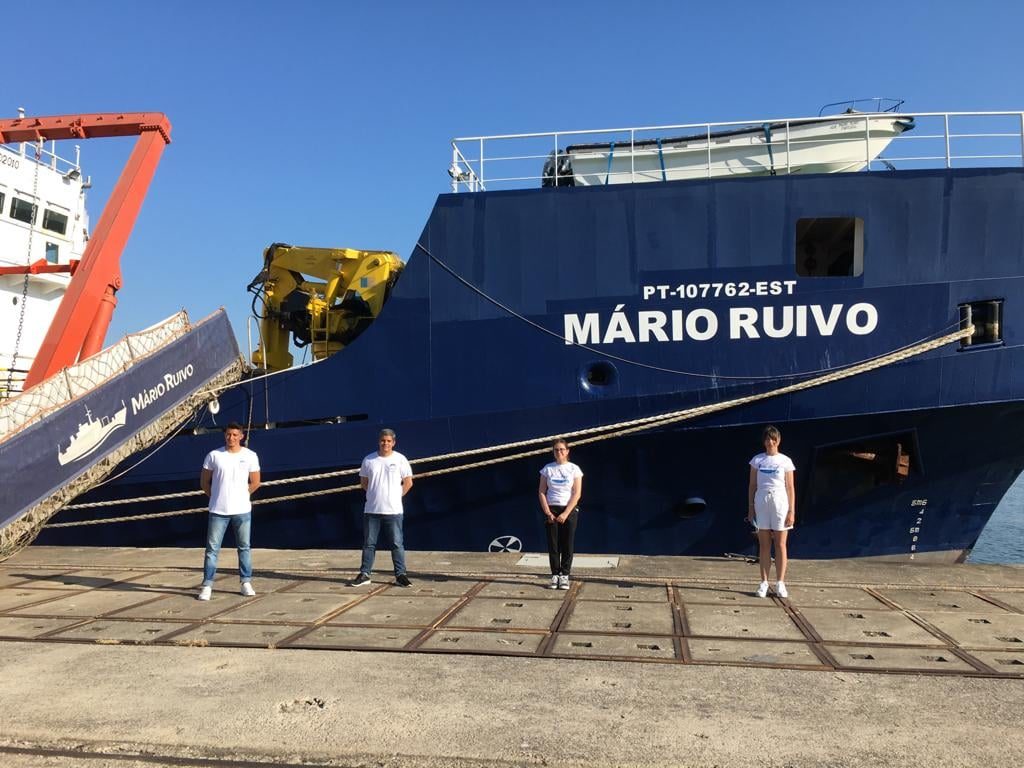 |
| Figure 1. Group photo before the departure group photo. |
The general objective of the course was to provide theoretical background and practical experience in the scientific understanding of marine ecosystems and the services they provide, and to use this knowledge to generate state-of-the-art advice for meeting conservation, management, and sustainability goals using as a case study the Nephrops norvegicus (Norway lobster).
 |
| Figure 2. Target Area |
Students were familiarized with measurements and sampling protocols. Training was conducted during the Crustaceans survey taking place along the Southwest and South coasts of Portugal, on board of R/V Mário Ruivo which is operated by Portuguese Institute for Sea and Atmosphere, Lisboa, Portugal.
 |
| Figure 3. RV Mário Ruivo |
Students participating in this course learned to:
- estimate the relative abundance of Nephrops norvegicus (Norway lobster) and deep-water rose shrimp for use in the assessment and advice process
- study the geographical distribution of the target-species
- determine biological parameters (sex-ratio, length-weight, maturity, growth) meeting the Data Collection Framework sampling requirements
- monitor the distribution and relative abundance of accompanying fish and invertebrate species
- collect data for the determination of biological parameters for selected fish species
- collect data for biodiversity studies and information on marine litter distribution to comply with the EU Marine Strategy Framework Directive requirements
- collect hydrographical and environmental parameters (e.g., temperature, salinity)
- collect sediment data to improve the definition of target-species habitat
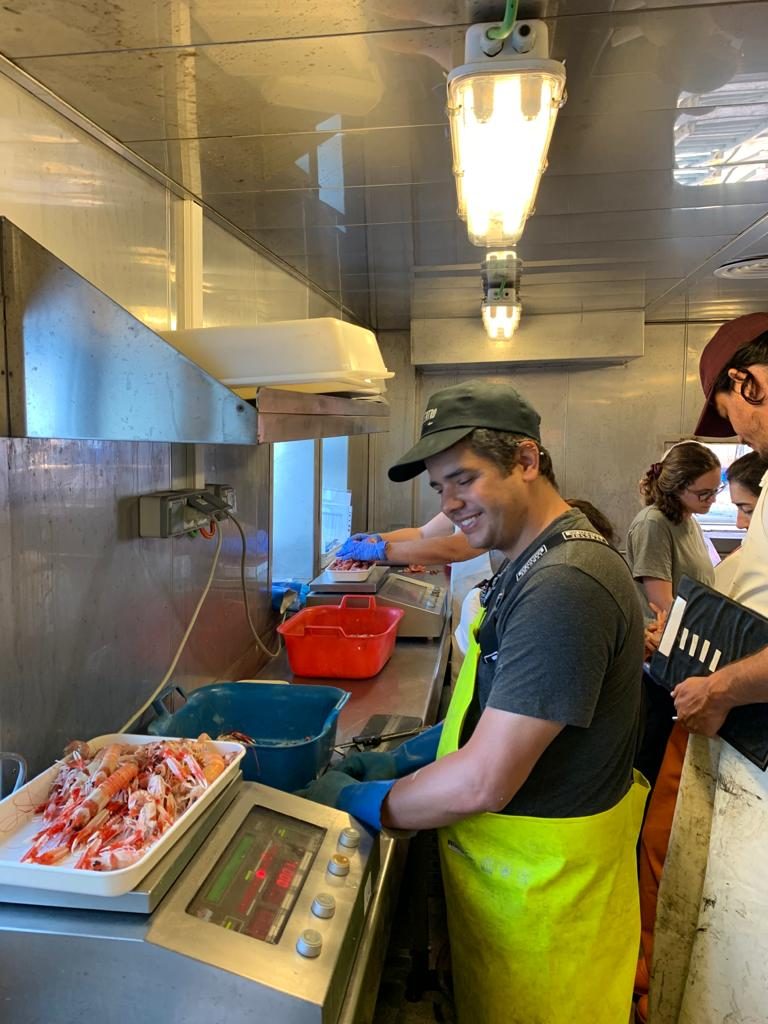 |
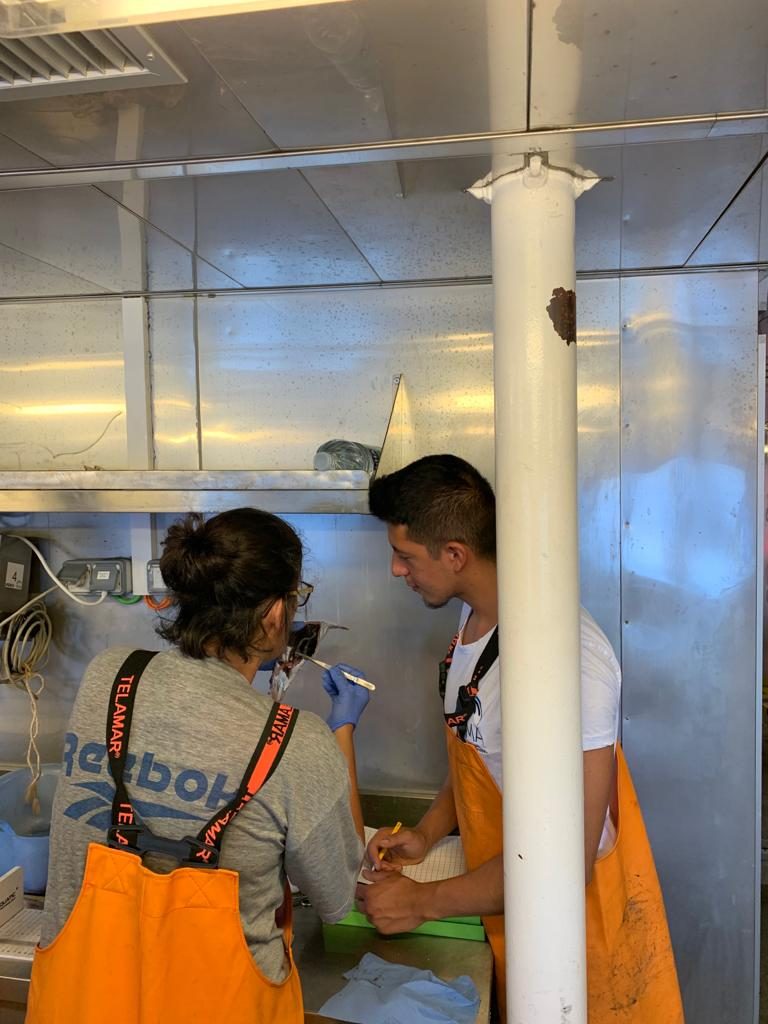 |
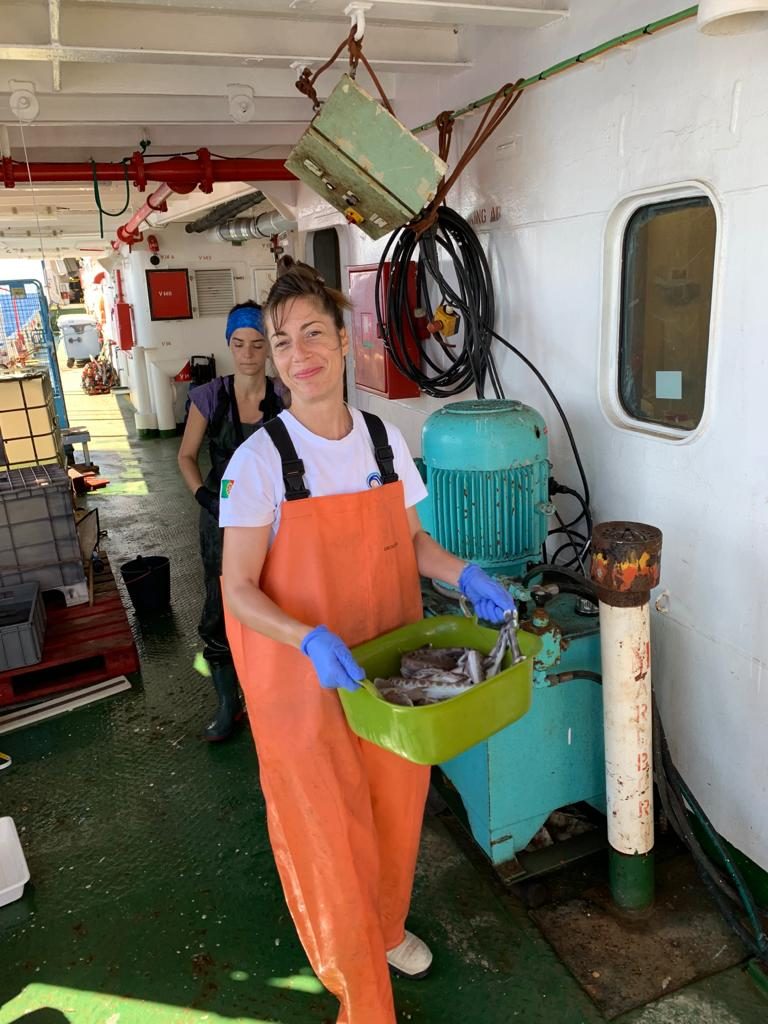 |
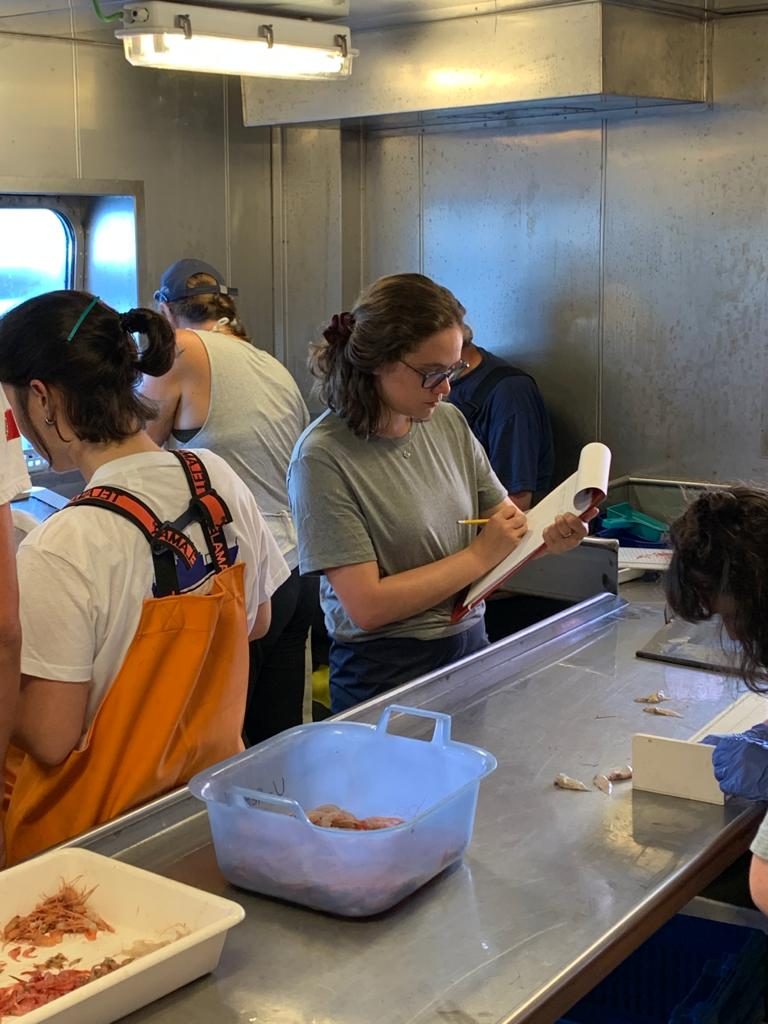 |
| Figure 4. Students at work |
One of the key objectives of Eurofleets+ is the delivery of five Floating Universities for early stage researchers of marine related sciences. Floating Universities will address a range of themes and topics and focus on the applications and operation of research vessel data acquisition and sampling systems and equipment.
There will be two additional Floating Universities hosted by different Eurofleets+ partners over the next three years, full details available on the Eurofleets+ here.
Make sure to subscribe to the Eurofleets+ newsletter and updates to keep up to date on the project activities.
